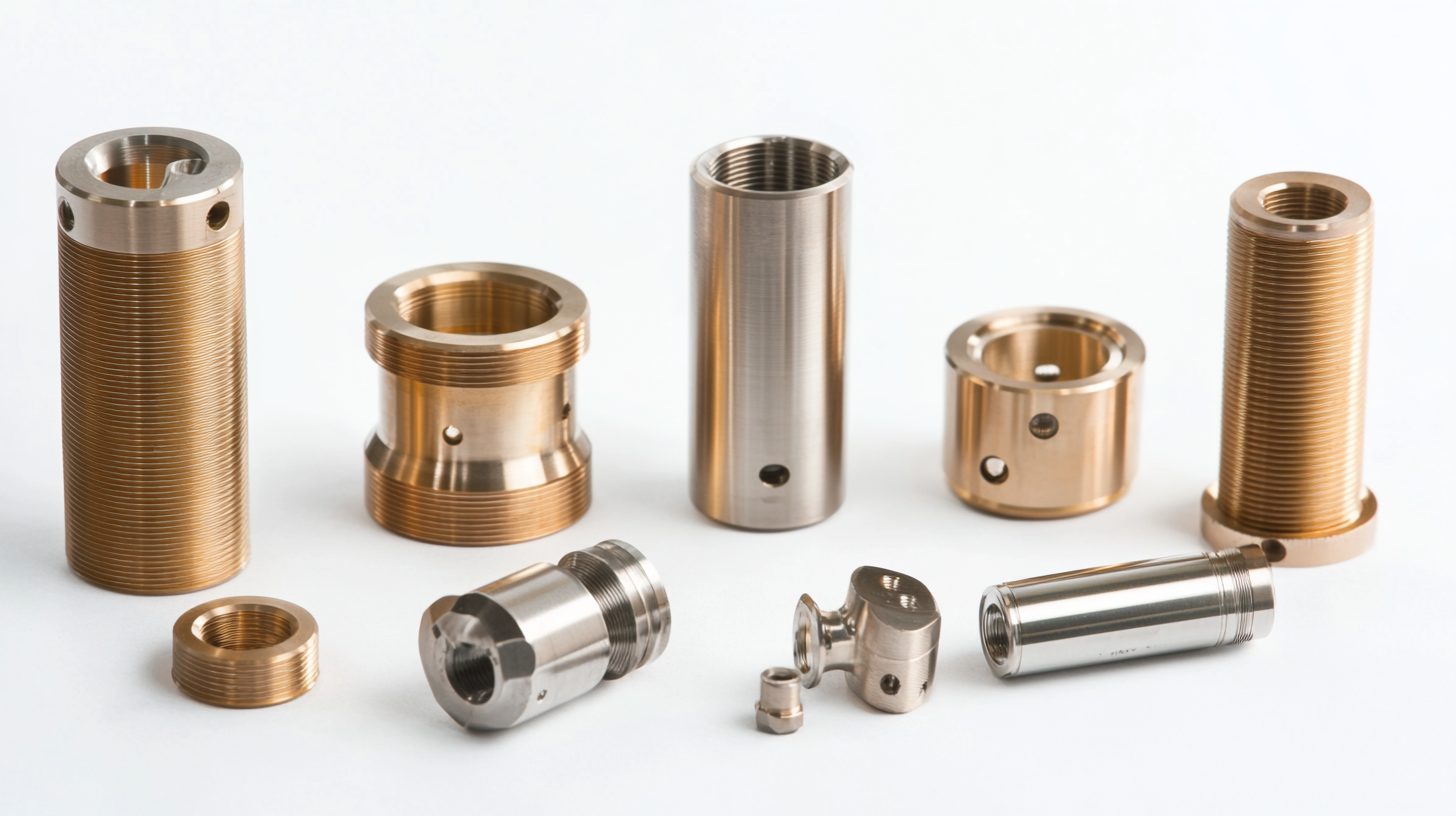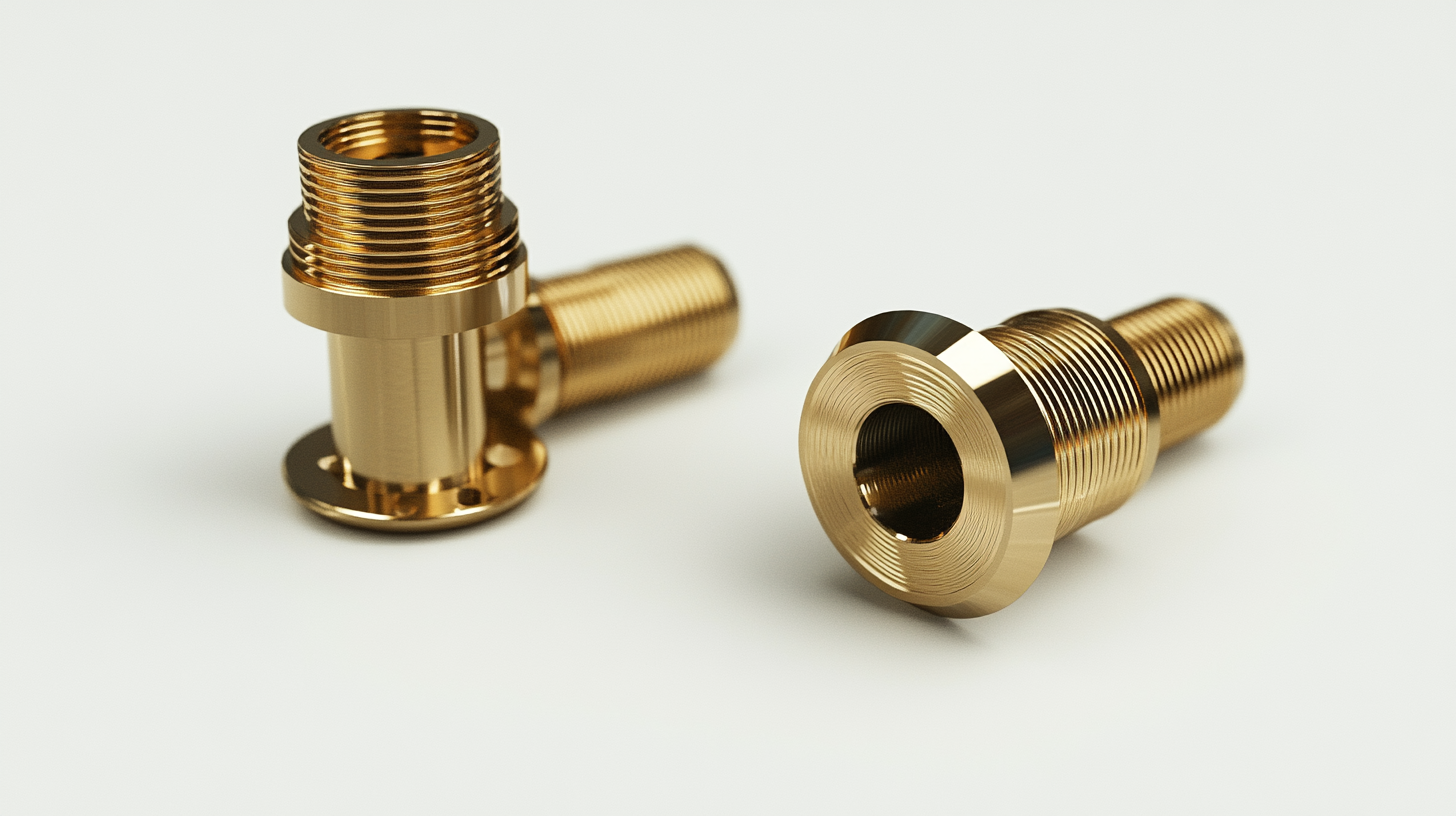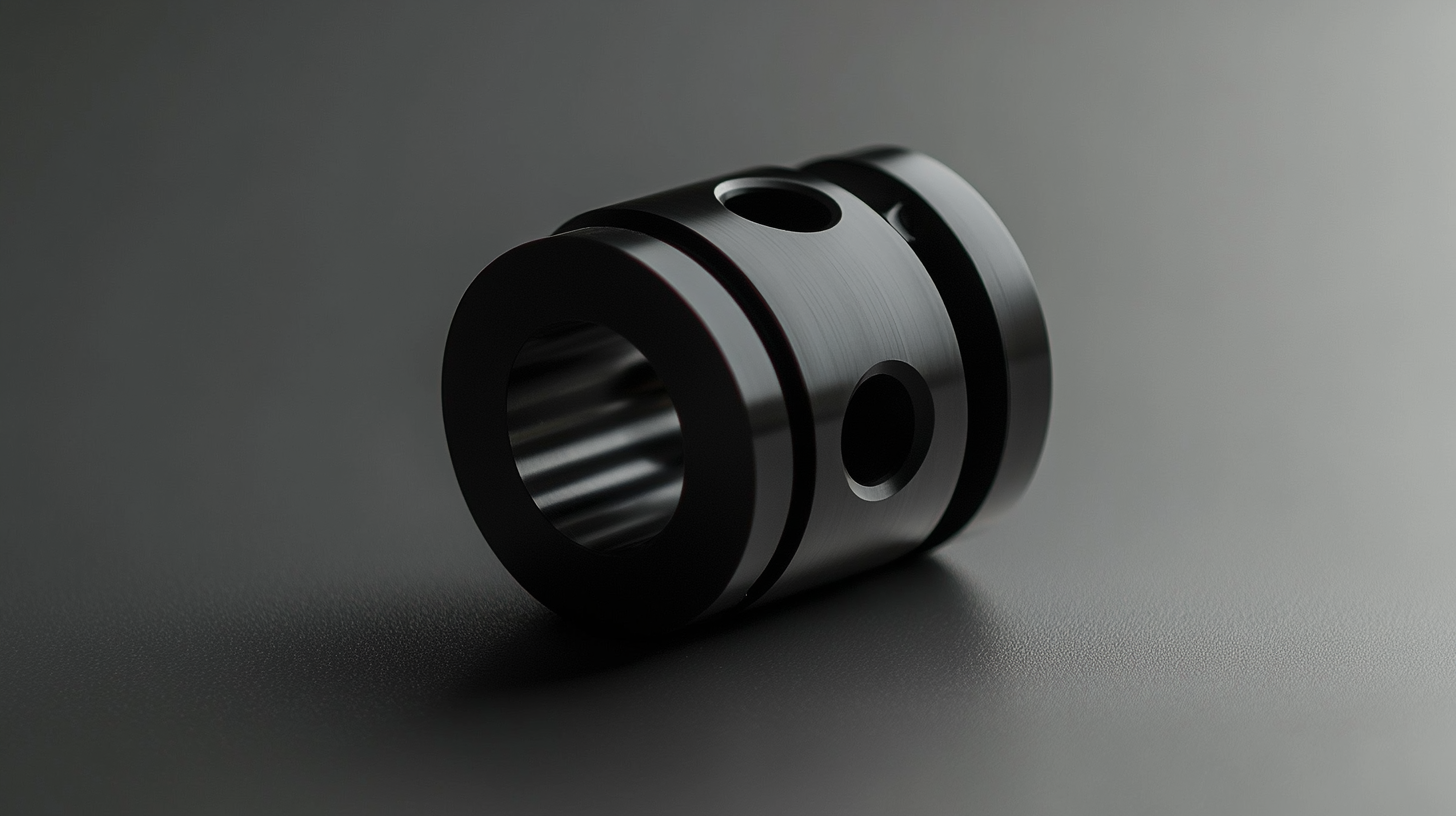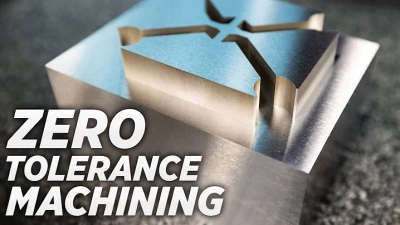5 Essential Tips for Sourcing High Quality Cnc Turning Parts Globally
In the rapidly evolving landscape of global manufacturing, sourcing high-quality CNC turning parts has become a pivotal challenge for many businesses. According to a recent report by the International Federation of Robotics, CNC machining is projected to grow by 29% over the next five years as industries seek precision manufacturing solutions to meet increasing demands. This growth underscores the importance of sourcing CNC turning parts that not only meet stringent quality standards but also are competitively priced. The ability to access reliable suppliers from around the world is crucial for manufacturers aiming to enhance productivity and maintain market competitiveness.
Moreover, a study by Grand View Research reveals that the global CNC machining market is anticipated to reach $100 billion by 2025, highlighting the critical nature of high-quality parts in the overall production process. As the need for precision components rises in sectors such as aerospace, automotive, and medical devices, manufacturers must adopt effective strategies for sourcing CNC turning parts that guarantee performance and reliability. This blog outlines five essential tips that can aid businesses in navigating the complex global supply chain landscape, ensuring they procure the best CNC turning components to drive their operations forward.

Identifying Reliable Suppliers in the Global Market
In the competitive landscape of global manufacturing, sourcing high-quality CNC turning parts requires a keen eye for identifying reliable suppliers. According to a report by Deloitte, 70% of global manufacturers believe that supply chain resilience is increasingly important, particularly when it comes to sourcing essential components from around the world. This highlights the necessity of establishing strong, trustworthy relationships with suppliers to mitigate risks associated with international procurement.
To evaluate potential suppliers, manufacturers should prioritize those with proven certifications and compliance with industry standards. The International Organization for Standardization (ISO) provides guidelines that ensure a supplier’s quality management systems meet global benchmarks. Data from the European Union's research indicates that ISO-certified suppliers can reduce production costs by up to 30%, emphasizing the financial and operational advantages of working with recognized firms.
Additionally, visiting suppliers' facilities can reveal much about their capabilities and quality control processes. A survey conducted by the Association for Manufacturing Technology reported that 62% of businesses found on-site visits crucial for verifying supplier reliability and assessing manufacturing capabilities firsthand. Engaging in direct communication with suppliers to discuss their production processes and quality assurance measures can further solidify trust and ensure the consistent quality of CNC turning parts. By employing these strategies, manufacturers can enhance their supply chain resilience and secure high-quality components.
5 Essential Tips for Sourcing High Quality CNC Turning Parts Globally - Identifying Reliable Suppliers in the Global Market
| Tip | Description | Key Considerations | Resources |
|---|---|---|---|
| 1. Define Your Requirements | Outline the specifications and quality standards for the parts you need. | Material types, tolerances, and finish requirements. | Online forums, technical specifications. |
| 2. Research Potential Suppliers | Look for manufacturers with a strong track record and positive reviews. | Check online ratings and testimonials. | Supplier directories, LinkedIn. |
| 3. Request Samples | Always ask for samples to evaluate the quality of parts. | Ensure samples align with your requirements. | Quality assurance checklists. |
| 4. Evaluate Communication | Assess the responsiveness and clarity of communication from suppliers. | Prompt replies indicate good customer service. | Communication tools, email connection. |
| 5. Understand the Costs | Get a detailed breakdown of costs involved to avoid surprises. | Include shipping, tariffs, and other fees. | Cost comparison tools. |
Evaluating Material Quality and Manufacturing Standards
When sourcing high-quality CNC turning parts globally, evaluating material quality and manufacturing standards is critical to ensure the longevity and performance of your components. The first step in this process is to delve into the specifications of the materials used. Different materials have unique properties that affect durability, wear resistance, and overall functionality. It’s essential to partner with suppliers who can provide detailed information about their materials, including certifications and traceability records to assure you they meet the necessary standards.
Next, understanding the manufacturing standards employed by your supplier is equally vital. Quality management systems such as ISO 9001 are benchmarks that indicate reliable manufacturing processes. It's advisable to request documentation of these certifications and review the supplier’s quality control measures. This not only helps in assessing their capability to consistently produce parts that meet your specifications but also ensures they adopt best practices in their production processes.
Moreover, conducting site visits or audits can provide invaluable insights into the supplier’s operational standards. Whenever possible, observing the production environment and equipment can help you gauge their commitment to quality. By focusing on both the material and manufacturing standards, you can make informed decisions that safeguard your investment and ensure the production of superior CNC turning parts that meet your project requirements.

Understanding the Importance of Precision in CNC Turning Parts
When it comes to sourcing CNC turning parts, precision is of utmost importance. CNC, or Computer Numerical Control, is a manufacturing process that enables the creation of complex and precise components for various industries, including aerospace, automotive, and medical. The slightest deviation in the specifications can lead to failures, safety issues, or additional costs due to rework. Therefore, understanding the nuances of precision in CNC turning parts is essential for businesses aiming to maintain high standards and performance.
To ensure high-quality CNC turning parts, it is crucial to work with reputable suppliers who prioritize precision in their processes. This involves evaluating their machining capabilities, technologies, and quality control measures. Advanced CNC machines, along with skilled operators, play a significant role in achieving the tight tolerances required in production. Furthermore, a comprehensive understanding of materials and coatings can impact the durability and performance of the finished parts, leading to better outcomes in the end application.
Effective communication regarding specifications and tolerances is another critical factor. Providing detailed technical drawings and clarity in requirements helps suppliers align their production processes with the exact needs of the customer. This proactive approach minimizes misunderstandings and enhances the likelihood of receiving high-quality parts that fit perfectly into the intended applications. In the fast-paced world of global manufacturing, prioritizing precision in sourcing CNC turning parts is fundamental to achieving success and fostering long-term supplier relationships.

Establishing Clear Communication and Specifications with Suppliers
When sourcing high-quality CNC turning parts globally, clear communication and well-defined specifications are paramount. Establishing a solid foundation of understanding with suppliers not only minimizes the potential for errors but also enhances the overall efficiency of the production process. Engaging in detailed discussions that outline your specific needs—including dimensions, tolerances, materials, and finish requirements—can significantly reduce the likelihood of misinterpretations and ensure that both parties are aligned on expectations.
In addition to defining specifications, it is essential to adopt a collaborative approach to communication. Utilize visual aids such as technical drawings and prototypes to convey complex details more effectively. Regular updates and feedback sessions strengthen the relationship and foster a culture of transparency. Suppliers who understand your standards and objectives are more likely to meet and even exceed your quality requirements, leading to a successful and productive partnership.
Finally, don’t underestimate the power of cultural sensitivity and language considerations. Establishing effective communication channels may involve using translation services or hiring bilingual staff if necessary. Respecting cultural differences and practicing patience during conversations can go a long way in building trust and rapport. By prioritizing clear communication and precise specifications, you can enhance your sourcing strategy and achieve consistent quality in your CNC turning parts.
Navigating Logistics and Compliance for International Orders
When sourcing high-quality CNC turning parts from global manufacturers, understanding logistics and compliance is crucial to ensure a smooth operation. The logistics of international orders involve multiple facets, from selecting the right shipping method to managing customs documentation. For example, opting for air freight can expedite delivery but may be cost-prohibitive for large shipments, while sea freight is economical but slower. Evaluating the urgency and size of your order is essential in choosing the most efficient shipping option.
Equally important is compliance with international trade regulations. Each country has specific legal requirements regarding importing goods. Be prepared to navigate various certifications, tariffs, and import duties that may apply to your CNC parts. Engaging a freight forwarder or customs broker can streamline this process, as they can help you understand these regulations and ensure all documentation is in order. Moreover, it's critical to verify that your manufacturers adhere to quality standards and that their products meet the compliance requirements of your home country.
Navigating the complexities of international logistics and compliance not only helps avoid delays and unexpected costs but also ensures that the CNC turning parts you receive are of the highest quality and fully compliant with relevant regulations.


